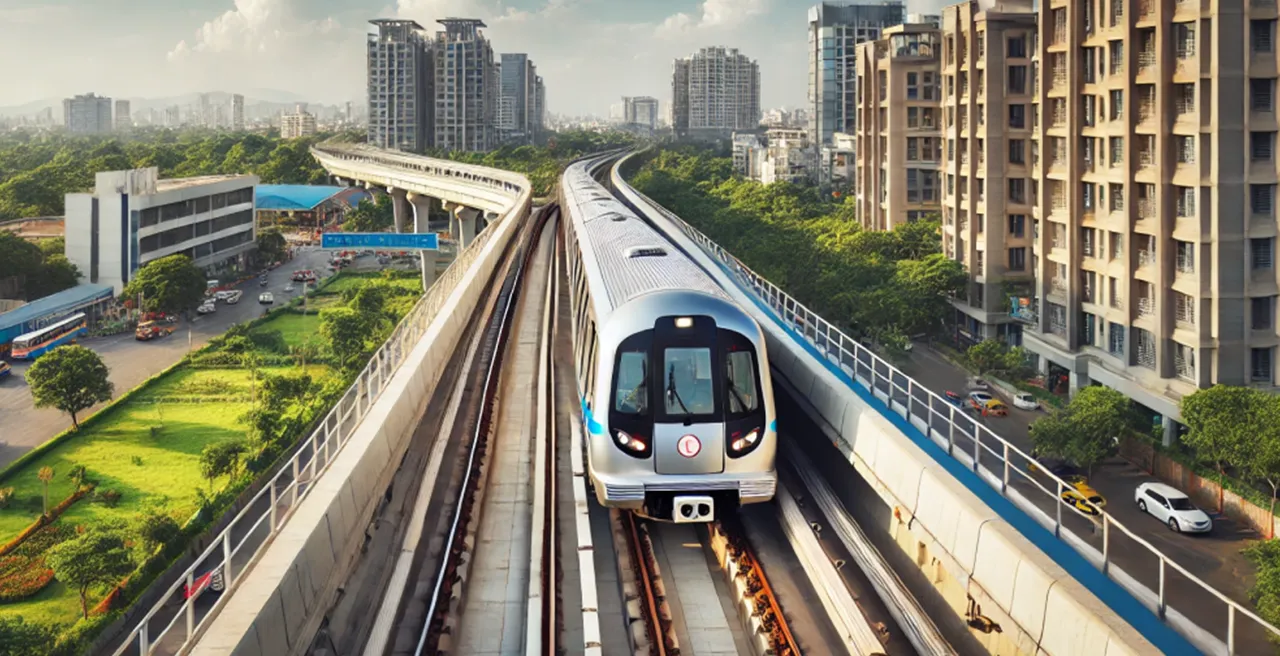Mumbai Metro-III Phase 2 Starts This May, Bringing Joy to Mumbaikars
Mumbai’s ambitious Metro-III project is set to revolutionise urban transportation, with the second phase, connecting Bandra Kurla Complex (BKC) to Colaba, scheduled to open by May 2025. Chief Minister Devendra Fadnavis announced the timeline during the legislative assembly, emphasising the transformative impact the metro line would have on the city’s transport system.
The Aarey-BKC first phase, inaugurated by Prime Minister Narendra Modi in October 2024, already serves six lakh passengers daily. However, the full potential of the metro line will be unlocked once the BKC-Colaba stretch becomes operational, boosting ridership to an estimated 1.7 million passengers per day. The Metro-III line, also known as the Aqua Line, will provide a critical link between Mumbai’s city centre and its suburbs. Stretching from Navy Nagar in the south to the Aarey depot in the north-central region, the line will integrate with other metro lines, monorail, suburban rail, intercity rail, and even the international airport.
This connectivity is expected to dramatically ease traffic congestion, reducing travel time between key areas such as Colaba and BKC. For example, a journey that currently takes over an hour by road could be completed in under 30 minutes via the metro. Metro-III offers an affordable travel solution for Mumbai’s residents, with ticket prices designed to cater to a wide range of commuters. Compared to rising fuel costs and taxi fares, the metro is a cost-effective alternative, ensuring accessibility for daily travellers, including office-goers and students. The 10-station stretch from Aarey to BKC was constructed at a cost of ₹14,120 crore and features nine underground stations. The project’s design prioritises efficiency, comfort, and safety, providing air-conditioned coaches and modern amenities for passengers.
Once fully operational, the Metro-III line is expected to cater to over 12 lakh daily passengers. It will serve as a lifeline for the bustling city, offering smoother commutes and improving overall quality of life. The reduced dependence on road transport will also lead to lower pollution levels and a greener environment for Mumbai. Chief Minister Fadnavis also highlighted the broader vision for Mumbai’s transportation network. Of the planned 374-kilometre metro system in the Mumbai Metropolitan Region (MMR), 70 kilometres are already operational, with an additional 20 kilometres nearing completion. As Mumbaikars prepares for the full rollout of Metro-III by May 2025, the project promises to redefine urban mobility, making travel faster, smoother, and more affordable. This development marks a significant step towards a smarter, more sustainable future for the city.


